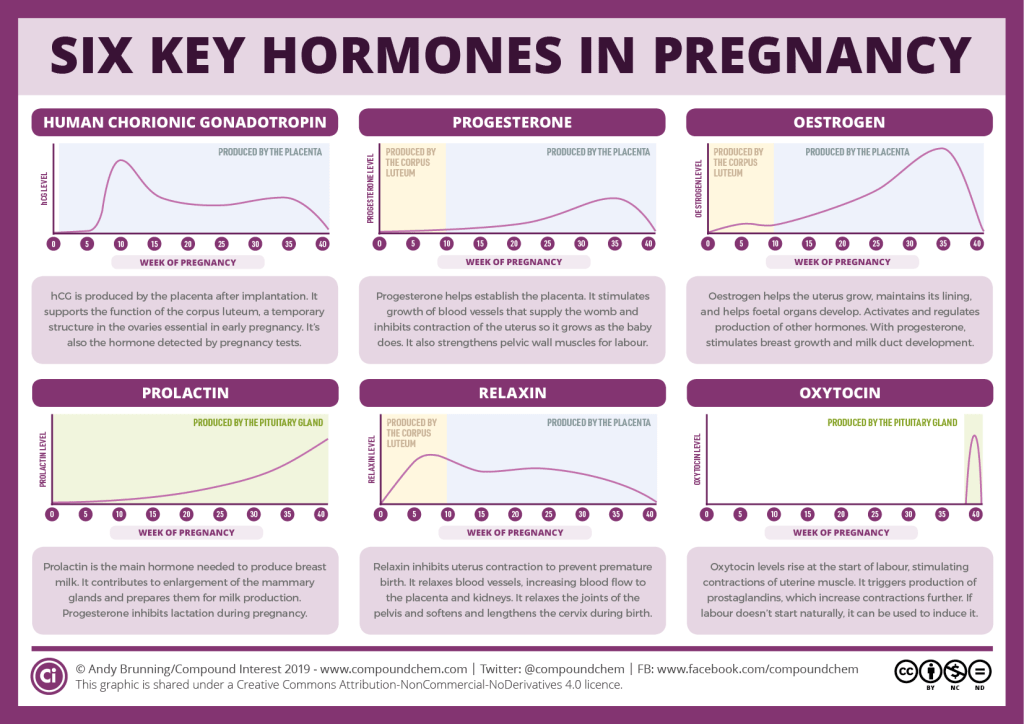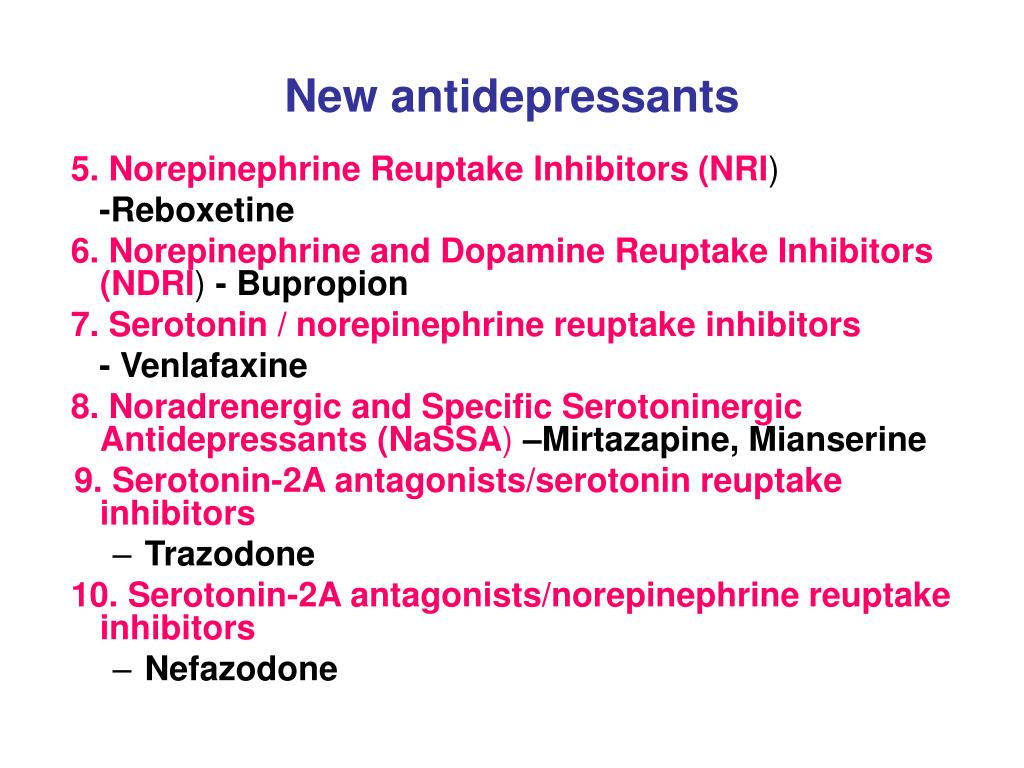Effects of pregnancy hormones
Pregnancy hormones: progesterone, oestrogen and the mood swings | Pregnancy articles & support
If your body and your mind feel all over the place right now, the main culprit is your pregnancy hormones. Here’s what you need to know.
If you’ve been wondering why pregnancy has sent you into daily crying fits or rages, then we have one word for you: hormones. Yet as well as affecting your mood, these super-powerful hormones can also affect:
- growth and development
- metabolism
- sexual function
- reproduction.
(MedlinePlus, 2016)
Yep, when you’re pregnant, hormones play a massive role (Kumar and Magon, 2012). They can influence things like the way you now sob at an episode of EastEnders. They also explain why everyone says you are ‘glowing’ and why your nails have grown properly for the first time since you were eleven.
They also help your growing baby develop and make a difference physically, with certain hormones relaxing your ligaments ready for labour. That might mean you find yourself getting more injuries or niggles in the body when you exercise while you’re pregnant too (Healthline, 2017).
Hormones may also have you leaping on your partner at certain points in your pregnancy, and horrified by the idea of sex at others.
Progesterone, oestrogen and other hormones in pregnancy
The most important hormones at play when you’re pregnant are as follows.
Oestrogen
Oestrogen is produced in early pregnancy to support your baby until the placenta takes over. Oestrogen helps the development of your baby’s organs and the correct function of the placenta. Yet it may also cause nausea and make ligaments softer, putting pressure on your lower back and pelvis (NHS, 2018).
Later in pregnancy, oestrogen helps to prepare your body for breastfeeding (if you choose to do so). It also enables your uterus to respond to oxytocin in labour (Society for Endocrinology, 2018).
Progesterone
Progesterone is produced in early pregnancy to support your baby until the placenta takes over. Progesterone causes an increase in blood flow to the womb. It might also be the one responsible for that pesky heartburn as well as vomiting, reflux, gas and constipation (Society for Endocrinology, 2018).
Progesterone causes an increase in blood flow to the womb. It might also be the one responsible for that pesky heartburn as well as vomiting, reflux, gas and constipation (Society for Endocrinology, 2018).
Later on it can help with your baby’s development. It’ll prevent you from producing milk until your baby’s born and will strengthen your pelvic floor muscles ready for labour (Society for Endocrinology, 2018).
Oxytocin
Oxytocin eases the pain during labour, and encourages the cervix to open as well as helping with your lochia (bleeding after birth). Oxytocin also plays a major role in milk production and bonding (Society for Endocrinology, 2018).
Prolactin
Similar to oxytocin, prolactin helps with bonding (Society for Endocrinology, 2018).
Relaxin
This is the hormone that makes your ligaments softer and means you need to adjust certain types of exercise so you don’t get an injury. Relaxin helps in labour, as it softens and lengthens the cervix as well as your pelvic area (Society for Endocrinology, 2018).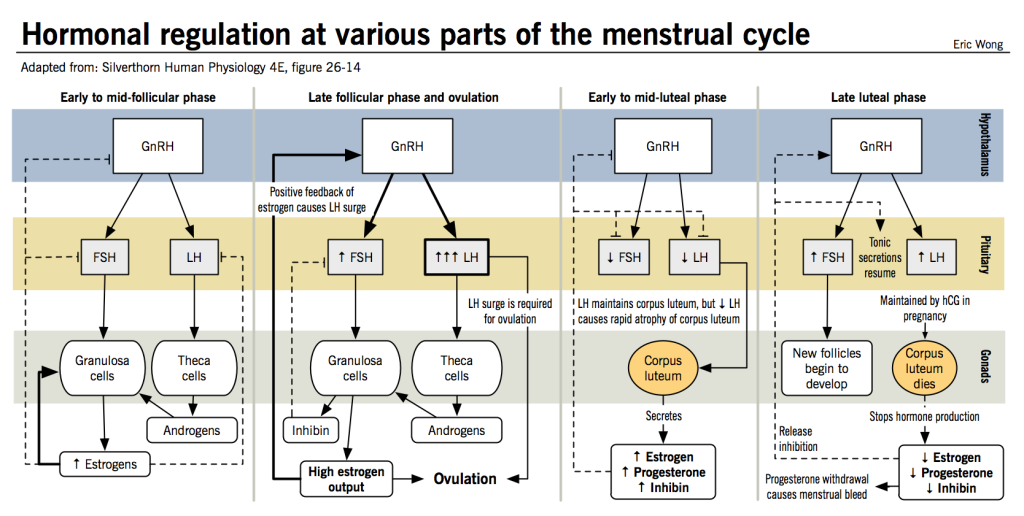
Human chorionic gonadotropin (HCG)
HCG is released into your bloodstream when you get pregnant to support you and your baby. It’s often an indicator of pregnancy in over-the-counter tests as well (Society for Endocrinology, 2018).
Human placental lactogen (hPL)
The hormone hPL helps your baby to get the nutrients they need while you’re pregnant (Society for Endocrinology, 2018).
Prostaglandins
Prostaglandins help to get the cervix ready for labour (Society for Endocrinology, 2018).
Hormones and emotions during pregnancy
While it can be a happy time in many ways, you’re likely to feel emotionally vulnerable and down at times during your pregnancy. No matter how excited you are that you’re having a baby.
If you think you’re feeling down or anxious a lot, speak to your GP, midwife and someone close to you (Northamptonshire Healthcare NHS Foundation Trust 2015). Feeling this way during pregnancy can also increase the chances of postnatal depression later down the line, so it’s good to flag it now.
This page was last reviewed in July 2018.
Further information
Our support line offers practical and emotional support with feeding your baby and general enquiries for parents, members and volunteers: 0300 330 0700.
We also offer antenatal courses which are a great way to find out more about birth, labour and life with a new baby.
How pregnancy hormones affect your body in each trimester
From the moment you become pregnant until weeks after birth, your hormones take a rollercoaster ride. Here’s what happens in your body when you have a baby.
Heather Schwartz was not herself when she was pregnant. In the first few weeks of pregnancy, the Vancouver mother suffered major anxiety and severe mood swings, something she had never experienced before. “My anxiety was through the roof,” she says. There were times when she couldn’t get out of the car at the dog park because she felt overwhelmed.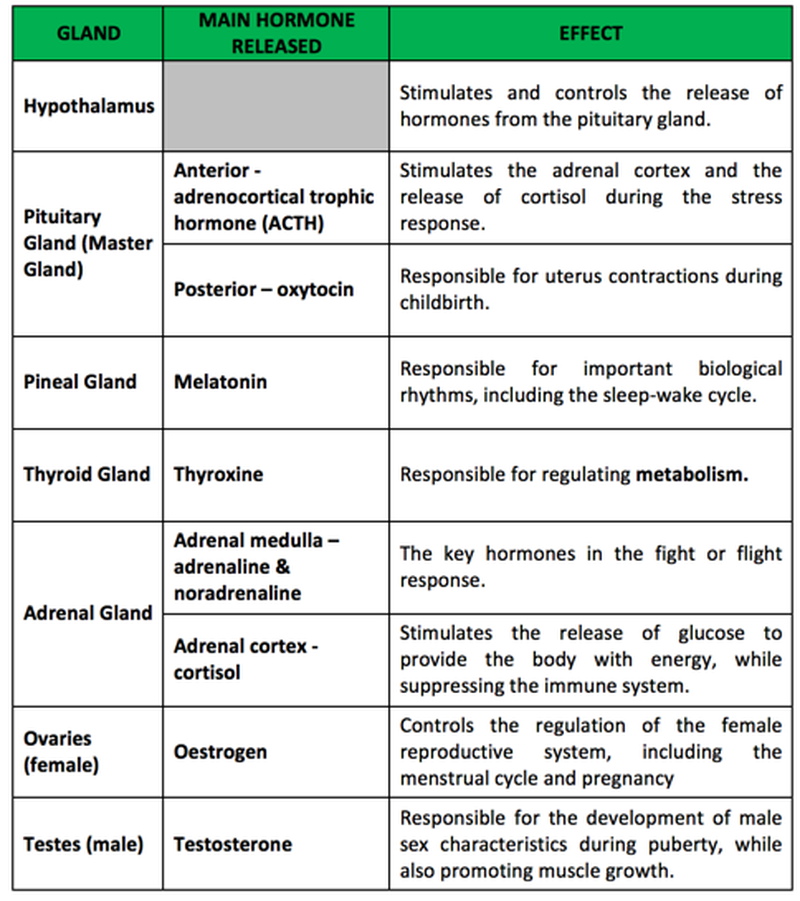 She also developed nausea that lasted all day. When thatfinally abated about five months into her pregnancy, Schwartzwas struck with another unpleasant pregnancy symptom, seemingly out of nowhere:
back pain. “It was excruciating,” she says. “I would lie in bed at night and wail.” Schwartzslew of ailments might seem unrelated, but as it turns out, they’re all caused by the same culprit—the surge of hormones that occurs during pregnancy.
She also developed nausea that lasted all day. When thatfinally abated about five months into her pregnancy, Schwartzwas struck with another unpleasant pregnancy symptom, seemingly out of nowhere:
back pain. “It was excruciating,” she says. “I would lie in bed at night and wail.” Schwartzslew of ailments might seem unrelated, but as it turns out, they’re all caused by the same culprit—the surge of hormones that occurs during pregnancy.
Pregnancy can take a real toll on your body as your hormones work to create a new human. We spoke to the experts about what happens to your body and why.
Your hormones in the first trimester
The first trimester can be a doozy. Your body is going into overdrive to grow that tiny embryo. Your blood volume increases, your immune system changes to protect the fetus, and your bloodstream is coursing with a whole whack of hormones.
When you first become pregnant, progesterone and estrogen, hormones that are a part of your normal menstrual cycle, rise dramatically, and a new hormone, one that’s special to pregnancy, called human chorionic gonadotropin, begins to be produced.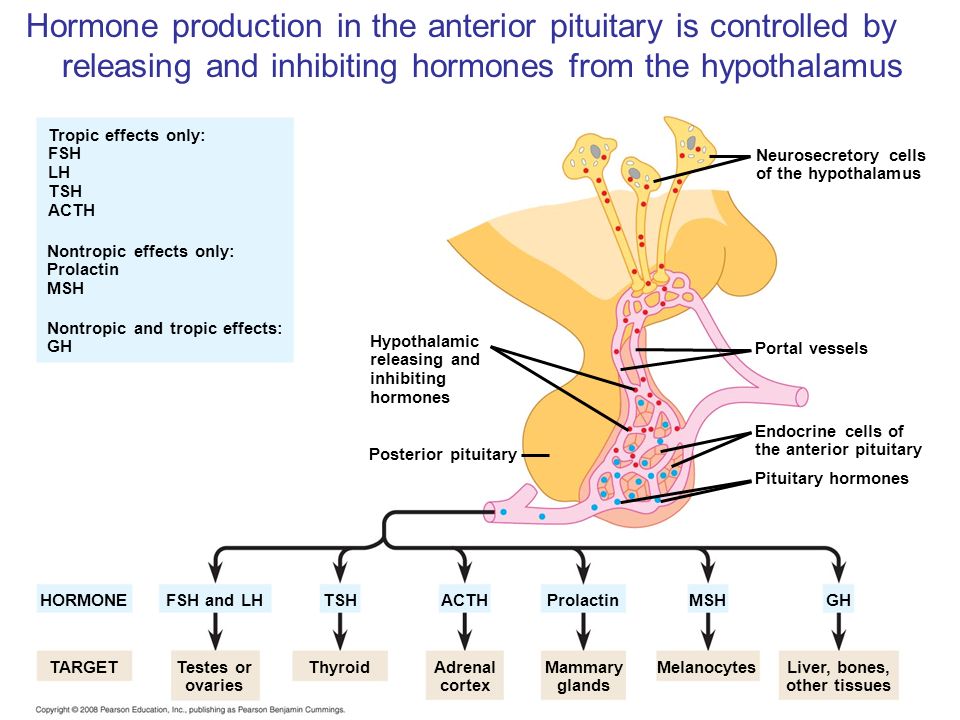
Progesterone is important for getting pregnant in the first place because it prepares your uterus lining forthe egg to implant and it acts as a muscle relaxant, preventing your uterus from contracting until the onset of labour. But those same muscle-relaxing properties can also cause constipation, as it slows down your digestive tract, says naturopathic doctor Kinga Babicki-Farrugia.
Progesterone is also associated with that classic irritability in the premenstrual period—and because your progesterone levels stay elevated during your pregnancy, mood swings can be a side effect, explains Ilana Halperin, a staff physician in endocrinology at Sunnybrook Health Sciences Centre and assistant professor at the University of Toronto.
Schwartz’s mood swings are actually what triggered her to take a pregnancy test in the first place. She would be angry one minute and sad the next.
Meanwhile, estrogen helps to regulate that progesterone while also maintaining the endometrial lining that is vital for the baby’s development.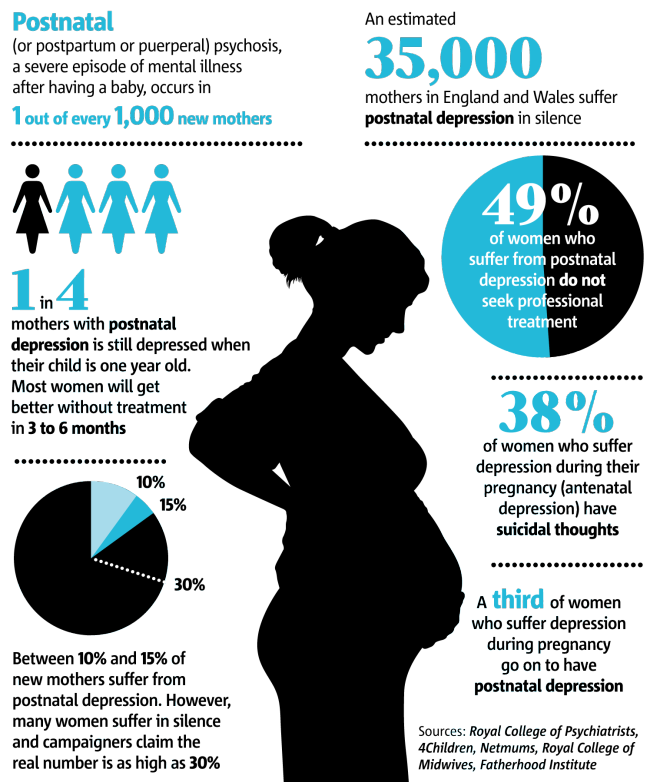 Estrogen is believed to promote an increase in blood flow, which is important for nourishing the baby, but that extra blood flow has the side-effect of making your breasts achy and tender, says Babicki-Farrugia. The increase in blood flow can also lead to that stuffy nose many women experience in pregnancy, by causing the mucous membranes in your nasal passages to swell. And that same blood increase can cause you to head to the bathroom more often. As your kidneys process the extra fluids and your uterus puts pressure on your bladder, you might feel the urgent and frequent need to pee. Fortunately, there is at least one benefit that may be due to this increase—a boost in blood flow may be part of the reason for your skin’s healthy pregnancy glow.
Estrogen is believed to promote an increase in blood flow, which is important for nourishing the baby, but that extra blood flow has the side-effect of making your breasts achy and tender, says Babicki-Farrugia. The increase in blood flow can also lead to that stuffy nose many women experience in pregnancy, by causing the mucous membranes in your nasal passages to swell. And that same blood increase can cause you to head to the bathroom more often. As your kidneys process the extra fluids and your uterus puts pressure on your bladder, you might feel the urgent and frequent need to pee. Fortunately, there is at least one benefit that may be due to this increase—a boost in blood flow may be part of the reason for your skin’s healthy pregnancy glow.
Human chorionic gonadotropin, or hCG, is known as the pregnancy hormone because it’s generally only produced during pregnancy. Home pregnancy tests give you that positive stripe when they detect this hormone in your urine.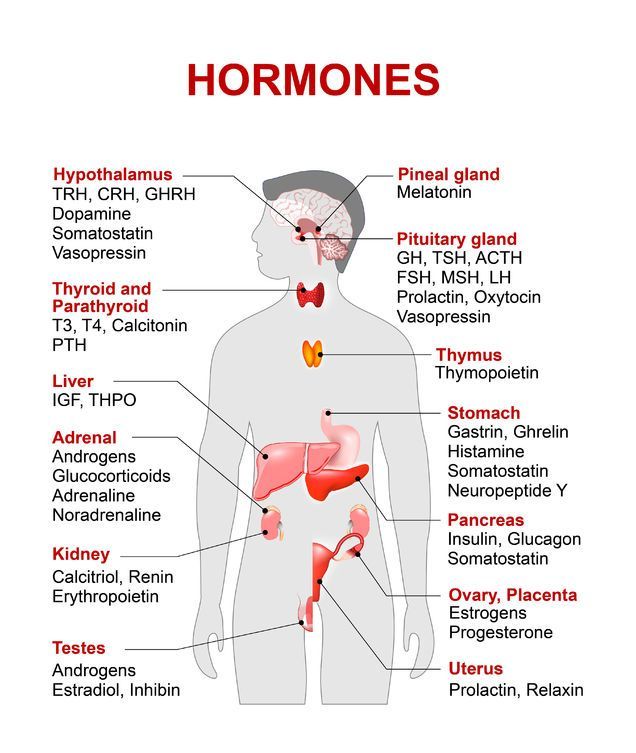 When you’re pregnant, your levels of hCG will rise rapidly, doubling every few days before reaching their peak in the first eight to 11 weeks.This hormone is important because high levels of it indicate that the placenta is beingcreated, says Doug Wilson, the department head of obstetrics and gynecology at Calgary’s Foothills Medical Centre and a professor at the University of Calgary. But, it may also make you feel nauseous.
When you’re pregnant, your levels of hCG will rise rapidly, doubling every few days before reaching their peak in the first eight to 11 weeks.This hormone is important because high levels of it indicate that the placenta is beingcreated, says Doug Wilson, the department head of obstetrics and gynecology at Calgary’s Foothills Medical Centre and a professor at the University of Calgary. But, it may also make you feel nauseous.
While there’s no conclusive science on exactly what causes morning sickness, hCG is often thought to be one of the culprits. “I always tell my patients that the sicker you feel, the better it means that your implantation and placenta is working,” says Wilson. If you are pregnant with twins or multiples, you may experience more nausea because there’s more hCG being created by your body. You may also have a heightened sense of smell, which could be related to hCG levels and increase your nausea. Since hCG peaks around weeks eight to 11, some women (unfortunately not all) start to feel some relief once theybegin the second trimester.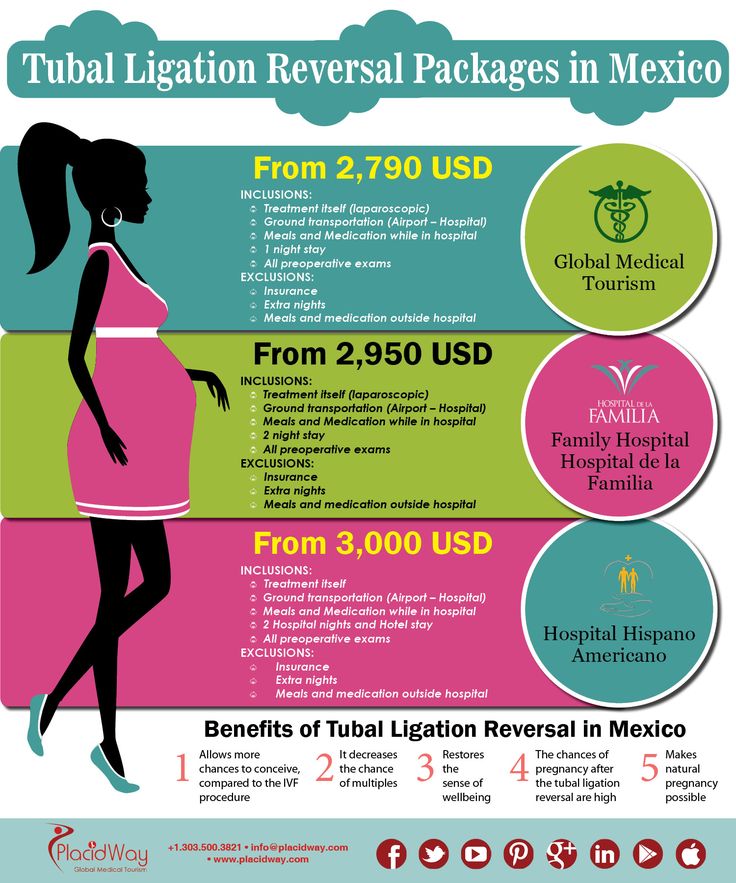
You might not think your thyroid has anything to do with pregnancy, but when you’re expecting, these hormones also go through a rapid change. Your thyroid hormones help regulate the metabolism of every cell in your body. When you become pregnant, those thyroid hormones need to increase in order to support the baby’s neurodevelopment and bone development, says Halperin.
Thyroid-stimulating hormone, or TSH, is produced in the pituitary gland in the brain and it helps regulate your other important thyroid hormones. The increase in hCG and estrogen can stimulate the thyroid even more, especially in someone expecting twins or multiples. “It’s a protective mechanism,” says Halperin, making sure your baby is getting enough of the thyroid hormones it needs. Your doctor will measure your thyroid levels through blood word in the first trimester, and may check againevery four to six weeks if there is a known thyroid problem or an abnormality in the initial test.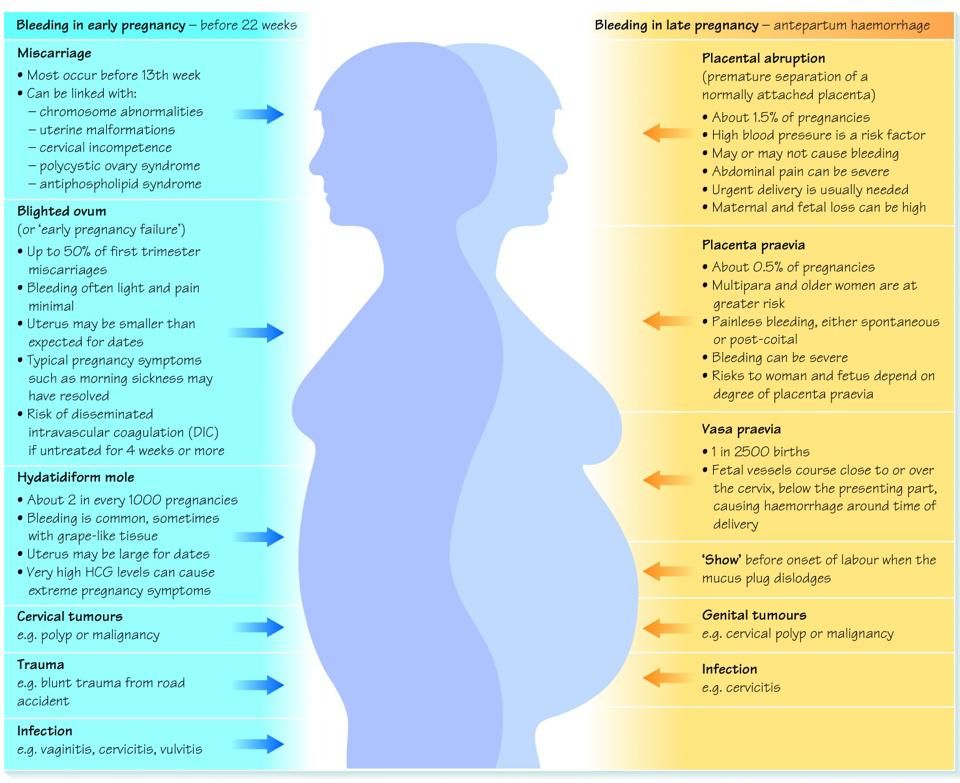 If anything is out of the ordinary, they may refer you to an endocrinologist for an assessment
If anything is out of the ordinary, they may refer you to an endocrinologist for an assessment
Your hormones in the second trimester
The second trimester is commonly known as the “best trimester” because at around week 13, many women start to feel human again. Nausea often starts to dissipate, but you’ll start to notice other changes.
For one thing, your muscles and joints may feel strange, or uncomfortable, especially around your pelvis. This is thanks to relaxin, a hormone that helps relax the smooth muscles in the pelvis, such as the cervix and uterus, and promote the growth of the placenta. While this might make prenatal yoga a bit easier, unfortunately, it can also cause women to experience some aches and pains in their ligaments, or even experience injuries more easily.
Schwartzexperienced serious back pain and soreness in her right hip and pelvis during her second trimester, likely thanks to this hormone. “I could barely walk,” she says.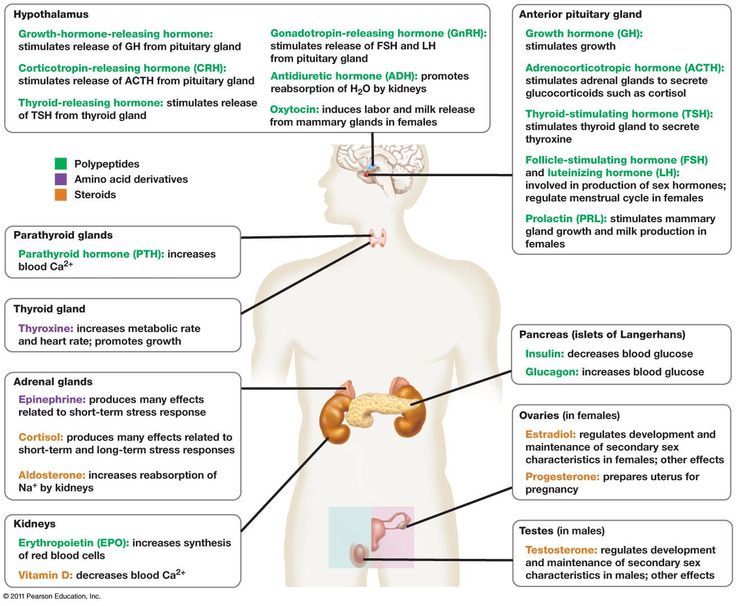 “I would drive home from work and I couldn’t get out of the driver’s seat for half an hour.” The pain didn’t dissipate until she gave birth.
“I would drive home from work and I couldn’t get out of the driver’s seat for half an hour.” The pain didn’t dissipate until she gave birth.
In the second trimester, estrogen and progesterone continue to increase to help grow the baby. But these hormones also stimulate the melanocyte-stimulating hormone. It triggers your skin’s melanocyte cells to produce melanin, which gives your skin colour. This is why some women may begin to notice the “mask of pregnancy,” otherwise known as melasma, which causes brown or grey patches around the face. You may also notice a darkline appear that goes up your belly, called the linea nigra, and your nipples darkening, along with more pronounced moles and freckles. Luckily, it usually resolves post-partum. Your hair might also begin growing more rapidly at this stage thanks to these same estrogen surges.
Cortisol also increases during pregnancy, but despite what you hear about this stress hormone, it’s not all bad—it’s important for the developing fetus because it can help regulate your metabolism and control blood sugar levels.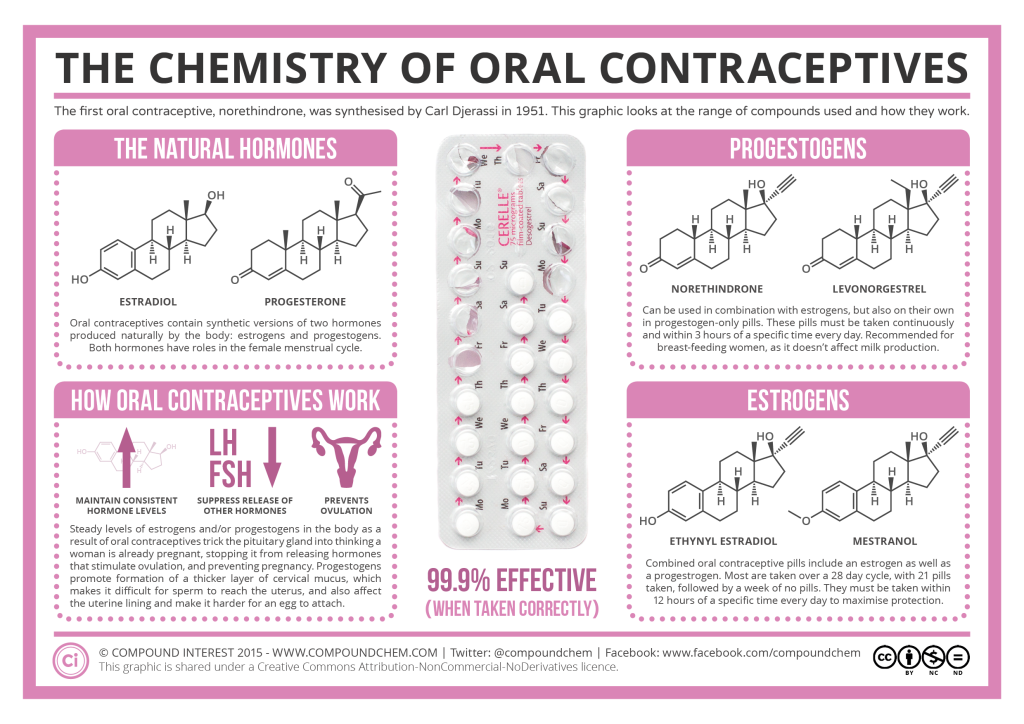 High levels of cortisol may bealso associated with some of those unfortunate symptoms like stretch marks, blood pressure issues, and added redness in the face and cheeks, says Babicki-Farrugia.
High levels of cortisol may bealso associated with some of those unfortunate symptoms like stretch marks, blood pressure issues, and added redness in the face and cheeks, says Babicki-Farrugia.
Human placental lactogen (HPL), a hormone secreted from the placenta, is thought to help the baby grow. It’s also one of the main hormones connected to insulin resistance during pregnancy, or gestational diabetes, which sometimes develops in the second trimester and can lead to overgrowth of the baby.
Your body’s changing reaction to insulin makes a lot of sense evolutionarily, says Halperin. “It’s a time of rapid growth for the fetus. If you had a woman who wasn’t getting enough to eat, by making them insulin resistant, more blood sugar, which is the mainstay for growth for the fetus, would pass over to the placenta,” she explains.
17 mind-blowing ways your body changes after giving birth
Your hormones in the third trimester
Your baby is starting to pack on the pounds this trimester and your body is increasing some of the hormones it will need postpartum.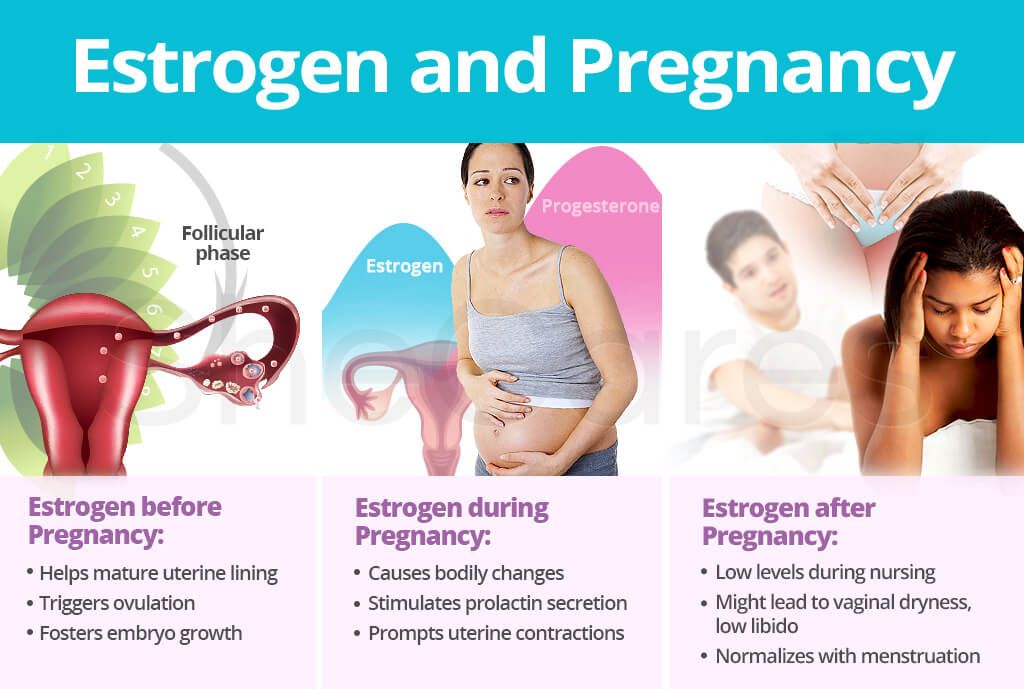 Estrogen and progesterone peak around 32 weeks and your estrogen levels are the highest they will ever be during this trimester—six times higher than before pregnancy, says Babicki-Farrugia. In this trimester, you might notice lots of swelling around your ankles and feet. While this can berelated to the lymphatic system, estrogen may also play a role because it’s indirectly involved in synthesizing a hormone related to salt and water retention, says Babicki-Farrugia.
Estrogen and progesterone peak around 32 weeks and your estrogen levels are the highest they will ever be during this trimester—six times higher than before pregnancy, says Babicki-Farrugia. In this trimester, you might notice lots of swelling around your ankles and feet. While this can berelated to the lymphatic system, estrogen may also play a role because it’s indirectly involved in synthesizing a hormone related to salt and water retention, says Babicki-Farrugia.
Late in pregnancy, women can also experience acid reflux or heartburn, because progesterone has relaxed the sphincter at the base of the esophagus, allowing food and stomach acid to travel back up. Meanwhile, relaxin helps to loosen those pelvis muscles towards the end of pregnancy to prepare for delivery.
Schwartzhad bad acid reflux in her third trimester. “I lived on antacids,” she said. She also experienced such swollen feet that she couldn’t wear her regular shoes.
Prolactin, a hormone that stimulates the development of your breast tissue to prepare for lactation, ramps up in the third trimester.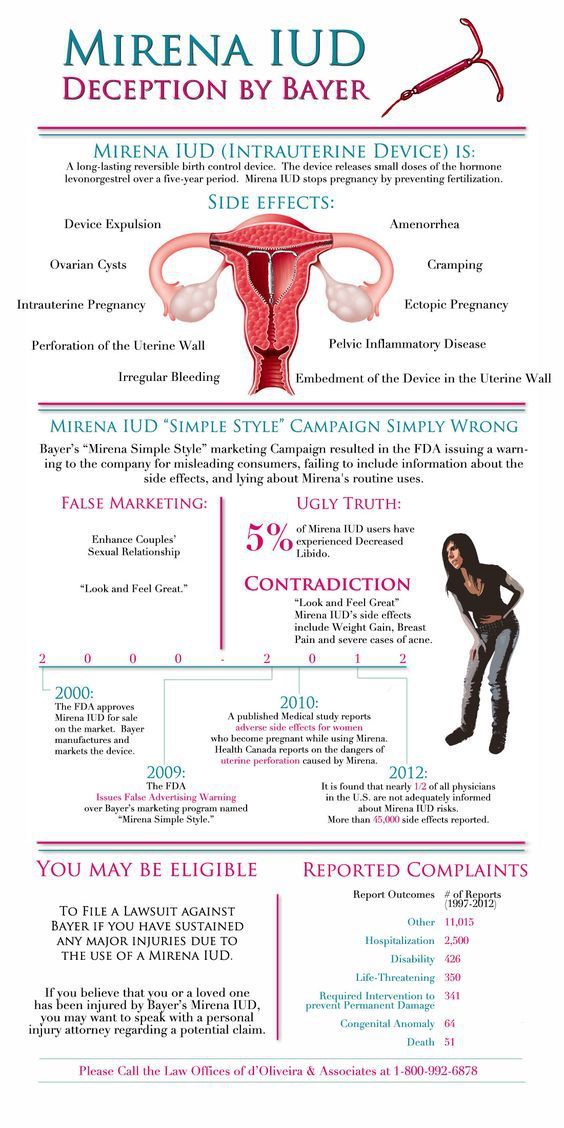 Prolactin is 10 times higher at the end of pregnancy than it is at the beginning. Though your body doesn’t actually produce milk at the breast until progesterone and estrogen drop after birth, it does start to get ready with colostrum, the first milk you produce for the baby, while you’re still pregnant. Yourbreasts may even start to leak a little bit before the baby is born, says Babicki-Farrugia.
Prolactin is 10 times higher at the end of pregnancy than it is at the beginning. Though your body doesn’t actually produce milk at the breast until progesterone and estrogen drop after birth, it does start to get ready with colostrum, the first milk you produce for the baby, while you’re still pregnant. Yourbreasts may even start to leak a little bit before the baby is born, says Babicki-Farrugia.
Doctors don’t know exactly what triggers labour, but it is thought to be a complex cascade of events including a rise in the hormone oxytocin and a drop in progesterone. In fact, if you need to be induced, your doctor may give you synthetic oxytocin, a drug called Pitocin. Oxytocin also produces the contractions your body needs to eliminate the placenta post-birth. Oxytocin and estrogen help release prostaglandins, which may soften the cervix to prepare for birth, and relaxin ramps up to loosen the ligaments and further soften and open the cervix.
Your postpartum hormones
After you give birth, your endorphins, those feel-good hormones that help you manage pain, are running high for 24 hours.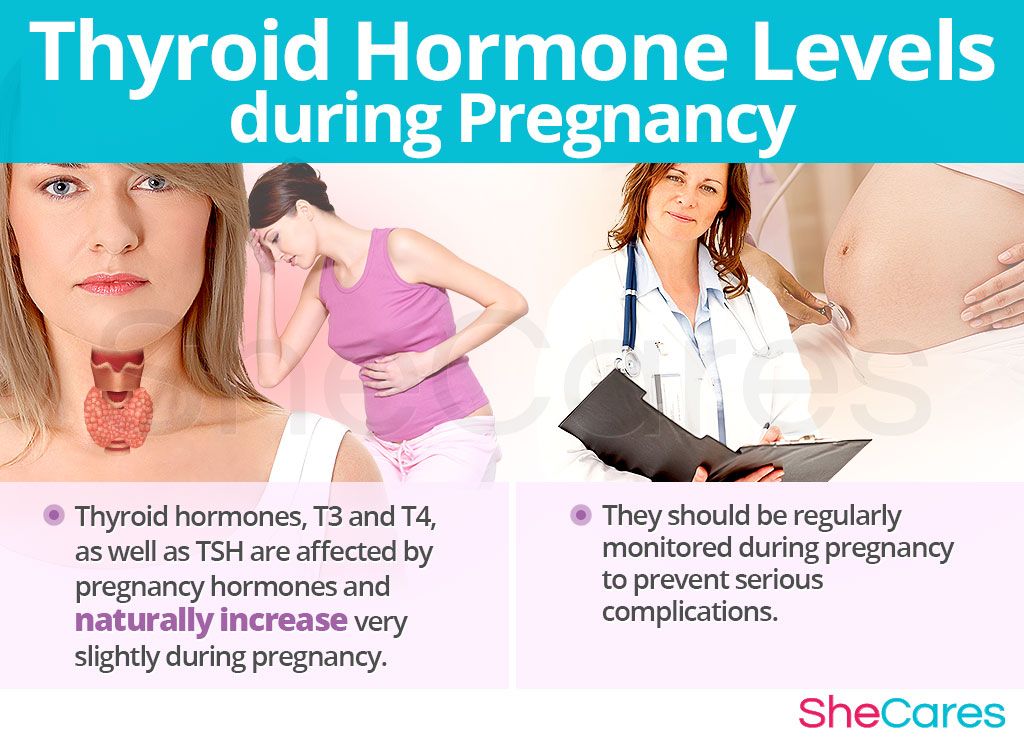 “Most women feel superhuman—you’ve just delivered this incredible little person,” says Babicki-Farrugia. But by day three and four, your hormones take a serious nosedive. After your body releases the placenta, all the hormones it was producing such as estrogen, progesterone, relaxin, hCG and HPL, go with it, explains Wilson. Estrogen and progesterone are the lowest they will ever be until you hit menopause. Many women start feeling those post-baby blues. You’re also likely sleep-deprived. Sleep deprivation is very clearly linked to cortisol, the stress hormone, so that alsoimpacts the way you feel, says Halperin. But hopefully you’ve got some oxytocin coursing through your system from quality baby time to help with some of the postpartum sadness.
“Most women feel superhuman—you’ve just delivered this incredible little person,” says Babicki-Farrugia. But by day three and four, your hormones take a serious nosedive. After your body releases the placenta, all the hormones it was producing such as estrogen, progesterone, relaxin, hCG and HPL, go with it, explains Wilson. Estrogen and progesterone are the lowest they will ever be until you hit menopause. Many women start feeling those post-baby blues. You’re also likely sleep-deprived. Sleep deprivation is very clearly linked to cortisol, the stress hormone, so that alsoimpacts the way you feel, says Halperin. But hopefully you’ve got some oxytocin coursing through your system from quality baby time to help with some of the postpartum sadness.
For approximately eight percent of women in Canada, those baby blues will turn into postpartum depression. Schwartzdealt with postpartum depression after her son was born and struggled with it for almost two years. After a few months, when her symptoms hadn’t improved, her doctor prescribed antidepressants to help her body get back on track.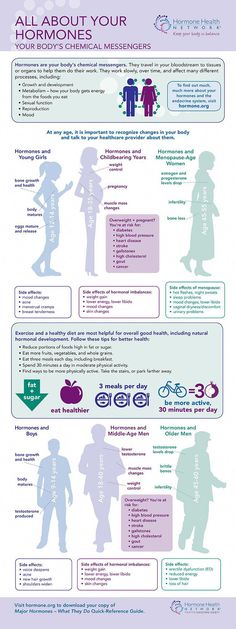
But postpartum hormone changes aren’t all bad. When the baby starts suckling, prolactin increases and it stimulates the production of milk, an important feedback loop when you are establishing your milk supply, says Wilson. Your prolactin levels also go up at night, so as exhausting as those nighttime feeds are, they can actually help establish your milk supply.
Breastfeeding and skin-to-skin contact also trigger the release of oxytocin, which is sometimes known as the “love hormone” because it increases in response to physical touch and is thought to help promote bonding. Oxytocin helps with milk letdown when breastfeeding, but, since the hormone can stimulate uterine contractions, some women may also experience painful cramps during breastfeeding for a few weeks after birth.
Eventually, for most women, everything will go back to normal, or your new normal, when your menstrual cycle returns, says Babicki-Farrugia . That could take up to a year or even longer and your hormones won’t level out completely until you’ve weaned.
Within six weeks of taking antidepressants, Schwartz says a light went off and she began feeling like herself again. While pregnancy was definitely a challenge, her health is finally back on track. She’s off her medication and loves spending quality time with her young son, who is now two.
Read more:
Acne after pregnancy and other postpartum skin conditions
‘Pregnancy brain’ is real — and may help women become better moms
Your Pregnancy Week by Week
Subscribe to Today’s Parent’s pregnancy newsletter for weekly updates on baby’s development, how you’re feeling and what to expect next.- Email*
- Your child's due date*
Month223456789101112
Day12345678910111213141516171819202122232425262728293031
Year2024202320222021
- CAPTCHA
- Consent*
Yes, I would like to receive Today's Parent's Pregnancy by Week newsletter.
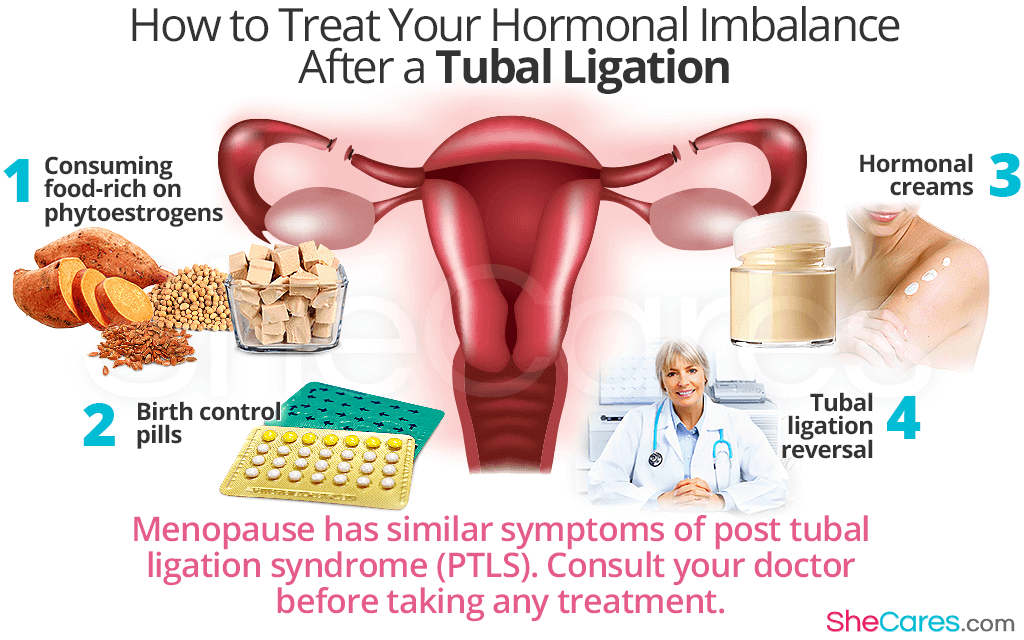 I understand I can unsubscribe at any time.**
I understand I can unsubscribe at any time.**
FILED UNDER: health health service seo hormones Pregnancy health pregnancy hormones Pregnancy signs
Hormones during pregnancy: how does the female body change?
Nausea, chest pain, appetite for pickled cucumbers are all hormones. During pregnancy, you are under their strong influence.
How do they work? Until you became pregnant, most of the hormones in your body were produced by endocrine glands such as the thyroid gland. Now, many of them also form in the placenta, which is inside the uterus. Immediately after the birth of the baby, the placenta is excreted from the body and pregnancy hormones are no longer needed.
Hormones cause nausea during pregnancy.
The culprit is human chorionic gonadotropin , which is produced by the embryo and then by the placenta. It is the presence of this hormone in the urine that leads to a positive pregnancy test result.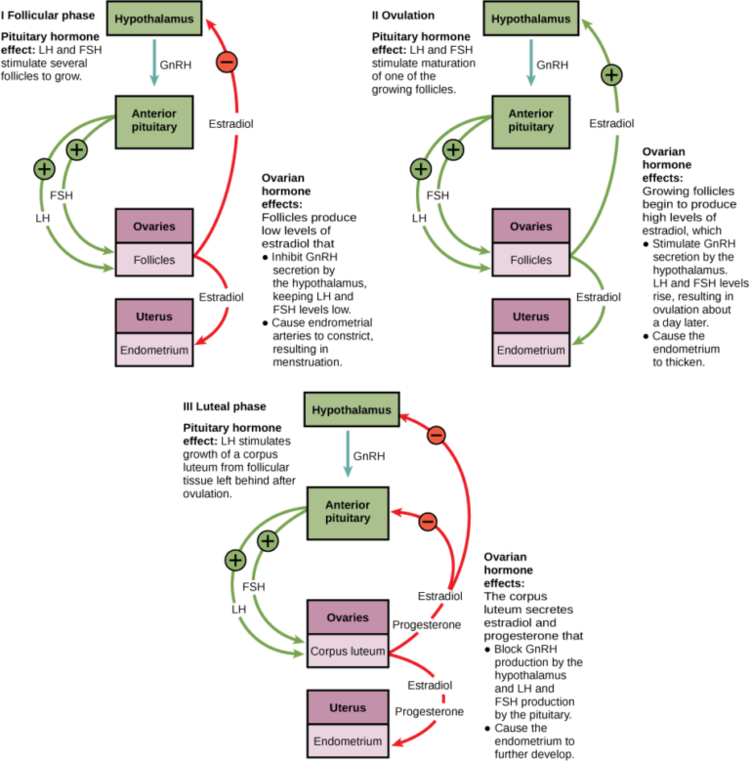 In addition, human chorionic gonadotropin increases the production of another hormone, progesterone , and stops the menstrual cycle.
In addition, human chorionic gonadotropin increases the production of another hormone, progesterone , and stops the menstrual cycle.
Feeling of happiness.
Endorphins - These hormones are your biggest allies. These are natural painkillers and calming hormones. They work like morphine. They are called happiness hormones because they are the reason you expect a baby with joy, regardless of nausea and other pregnancy ailments. The source of endorphins is in the brain, where they are produced until the end of labor. The highest concentration of endorphins at the time of childbirth. Thanks to them, the pain becomes weaker, and the stress associated with childbirth is not so tiring. After childbirth, the level of endorphins drops sharply. This is probably the cause of a mild form of postpartum depression.
Sexual attraction.
Estrogens , which affect your sex drive, are first produced by the ovaries and then by the placenta.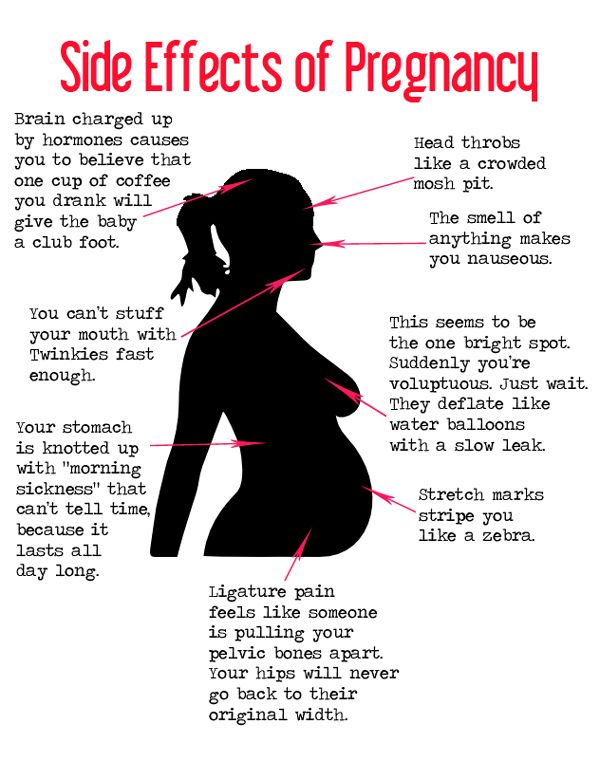 Estrogen production rises rapidly at the beginning of pregnancy. Thanks to estrogen, you feel that the desire for intimacy in the first trimester of pregnancy increases. Estrogens increase the blood supply to the breasts, vagina, vulva, and clitoris, which become especially sensitive. It is interesting! Thanks to pregnancy hormones, sex in the second trimester of pregnancy can be the best in a lifetime, according to scientists!
Estrogen production rises rapidly at the beginning of pregnancy. Thanks to estrogen, you feel that the desire for intimacy in the first trimester of pregnancy increases. Estrogens increase the blood supply to the breasts, vagina, vulva, and clitoris, which become especially sensitive. It is interesting! Thanks to pregnancy hormones, sex in the second trimester of pregnancy can be the best in a lifetime, according to scientists!
They relax muscles and prevent spasms. This is the influence of one of the most important pregnancy hormones: progesterone . Before pregnancy, it was produced, like estrogens, by the ovaries, now this function has passed to the placenta. Progesterone is responsible for most of the changes in your body during pregnancy (including fever, increased breathing). It relaxes the smooth muscles of the uterus and protects against miscarriage.
Pregnancy hormones prepare you for childbirth.
Preparing for childbirth is the merit of relaxin .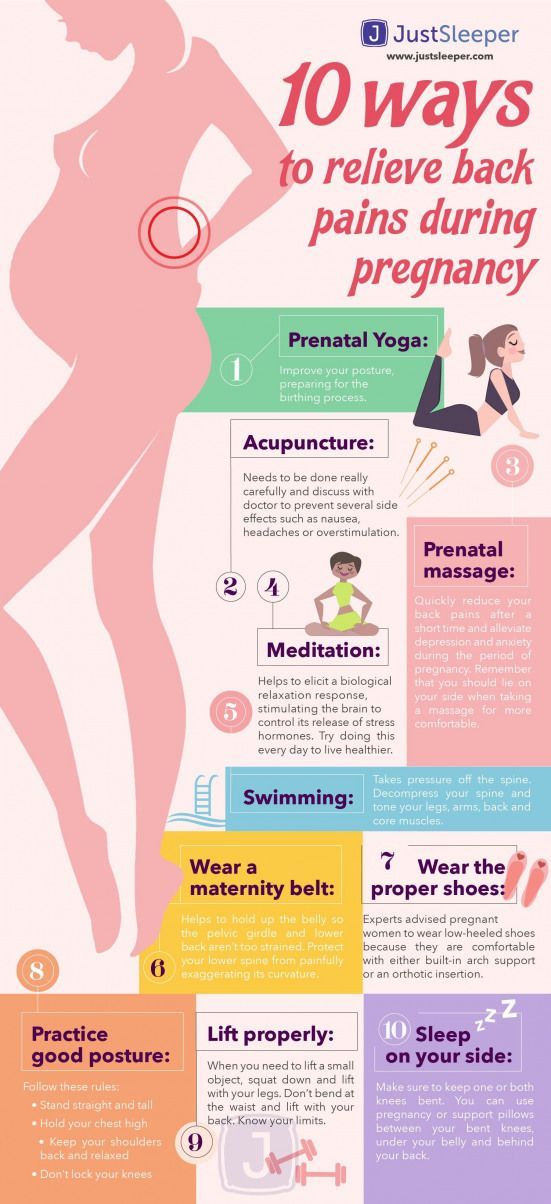 Under its influence, the joints of the pelvic bones relax, soften the cervix and increase the elasticity of the surrounding ligaments, so that your uterus will grow, and your child will be able to pass through the birth canal.
Under its influence, the joints of the pelvic bones relax, soften the cervix and increase the elasticity of the surrounding ligaments, so that your uterus will grow, and your child will be able to pass through the birth canal.
Labor spasms.
Prostaglandins and oxytocin are the hormones that most support the final stages of pregnancy. The rising level of oxytocin is responsible for the development of the maternal instinct. In the last trimester, you begin to feel uterine contractions stimulated by prostaglandins. If you have sex, you can speed up labor because prostaglandins are also found in male semen. Oxytocin stimulates predictive uterine contractions or Braxton-Hicks contractions and then the corresponding labor contractions. In some situations, it stimulates labor and accelerates the passage of the placenta.
Help in the first days after childbirth.
Two more hormones, prolactin and placental lactogen , will allow you to breastfeed your baby.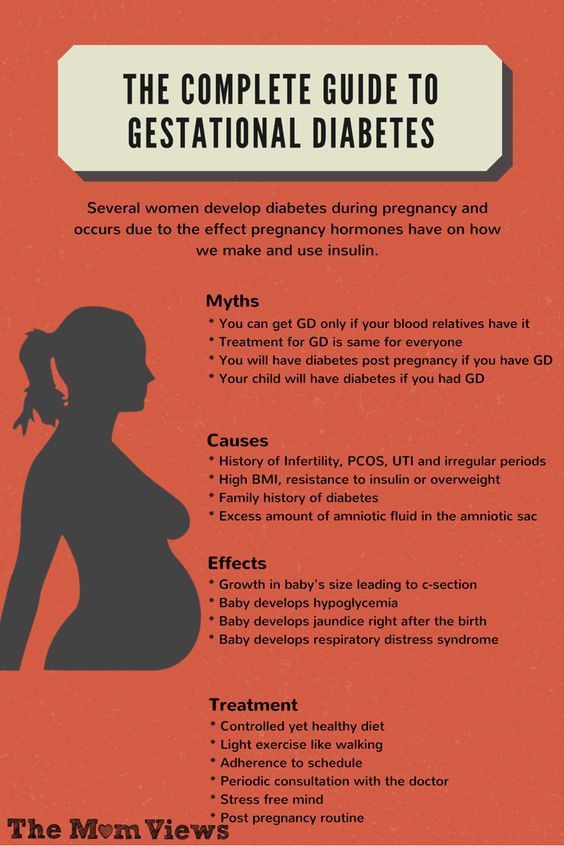 Thanks to them, the breasts begin to secrete colostrum (the first very nutritious food that can be excreted as early as the 19th week of pregnancy). Your body will produce it within days of giving birth. Later, milk will appear due to these hormones.
Thanks to them, the breasts begin to secrete colostrum (the first very nutritious food that can be excreted as early as the 19th week of pregnancy). Your body will produce it within days of giving birth. Later, milk will appear due to these hormones.
Pregnancy hormones also affect your appearance:
- Hair - at the end of the first trimester, it grows faster, it is thicker, thicker and stronger. Their prolapse cycle is slowed down due to increased levels of estrogen .
- Skin - increased levels of estrogen and progesterone cause blockage of the sebaceous glands. Acne may appear all over the body . Melanotropin is responsible for dark spots on the face.
- Breast - progesterone and estrogen make the breast grow, prepare for feeding. Their skin stretches, their nipples darken.
Hormonal studies during pregnancy / Nyanya.ru
27.02.2012
Nona Hovsepyan, Consultant Physician, Independent Laboratory INVITRO
Why is it necessary to control the level of hormones?
Hormones are amazing biologically active substances that affect not only the state of health, but also the inner world of a person.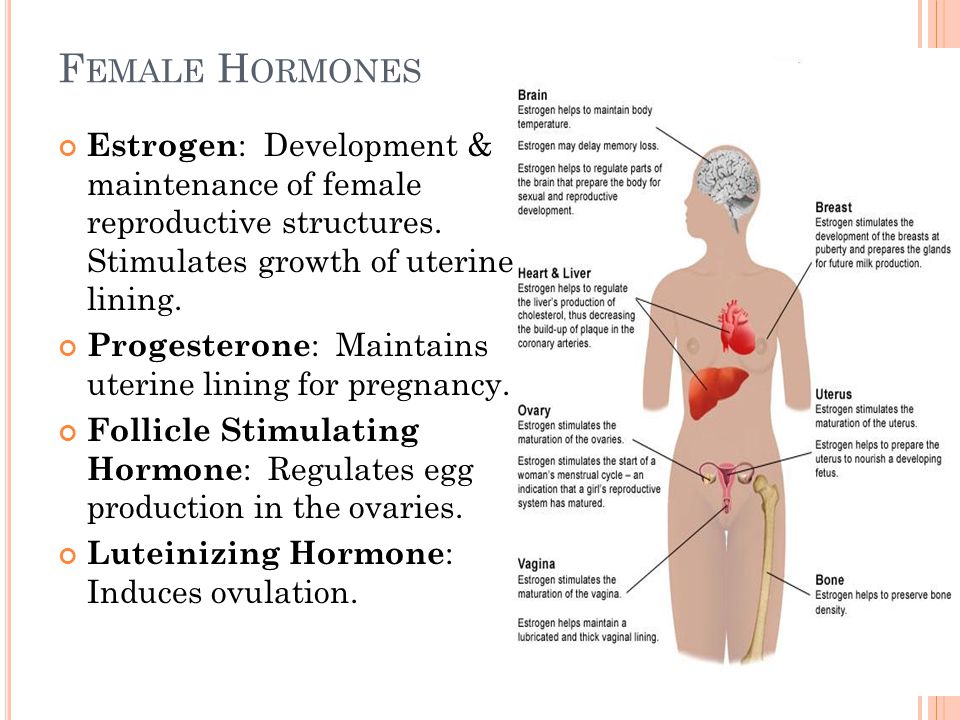 Nature provides that in the female body immediately after conception, special pregnancy hormones are activated, which not only help the baby to fully develop, but also set up the expectant mother for the desired motherhood, teach them to love the baby growing inside and get used to taking care of him.
Nature provides that in the female body immediately after conception, special pregnancy hormones are activated, which not only help the baby to fully develop, but also set up the expectant mother for the desired motherhood, teach them to love the baby growing inside and get used to taking care of him.
During the period of expectation of a baby, serious changes occur in the whole body of a woman, especially her hormonal background. Changes occur throughout the endocrine system. The body of the future mother, completely rebuilding, creates the conditions for the bearing and normal development of the baby, and from the first days of pregnancy begins to prepare for childbirth.
All hormonal indicators of the future mother's body play a huge role - namely, they are the most important indicators of fetal development. Therefore, the level of hormones is necessarily monitored by the attending physician with the help of special examinations - prenatal screenings, which a woman needs to undergo at least 2 times: in the first trimester (11-12 weeks) and in the second trimester (16-19weeks). Let's figure out what indicators are included in this mandatory examination, what the increase or decrease in the level of a particular hormone indicates, and what their role is.
Let's figure out what indicators are included in this mandatory examination, what the increase or decrease in the level of a particular hormone indicates, and what their role is.
Hormones that the body of the unborn baby "produces"
HCG. This is human chorionic gonadotropin, a hormone that is actively produced by the cells of the chorion (fetal membrane) immediately after it attaches to the wall of the uterus. The "production" of this hormone is vital for the preservation and maintenance of pregnancy! It is hCG that controls the production of the main pregnancy hormones - estrogen and progesterone. With a serious lack of hCG, the fertilized egg is detached from the uterus, and menstruation occurs again - in other words, a spontaneous miscarriage occurs. Normally, the concentration of hCG in the blood of the expectant mother is constantly growing, reaching a maximum by the 10-11th week of pregnancy, then the concentration of hCG gradually decreases to remain unchanged until the very birth.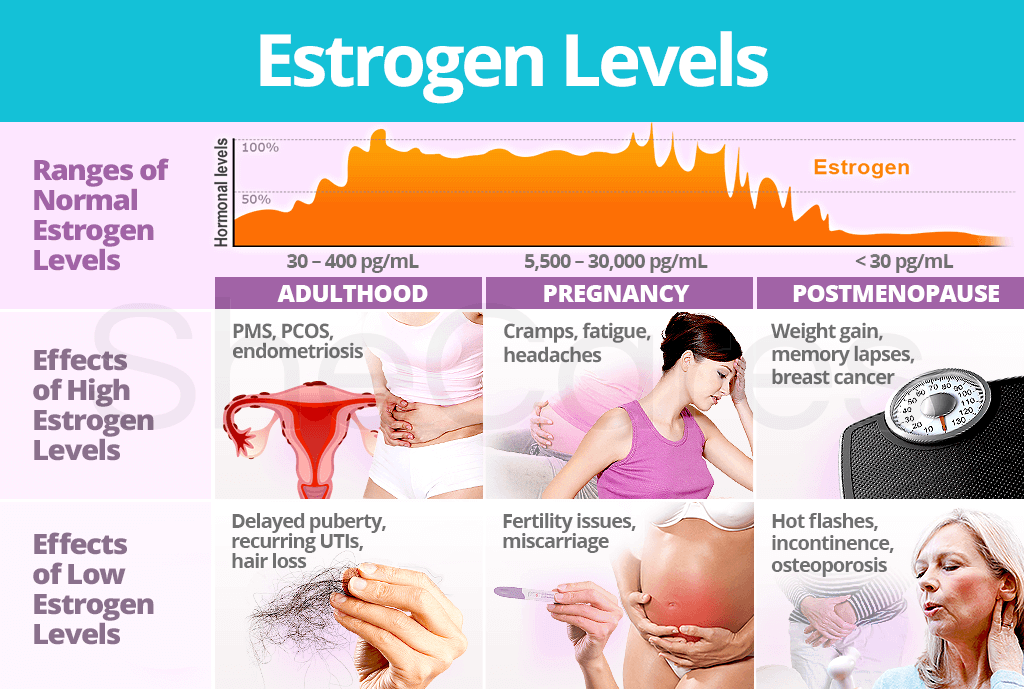
HCG testing during pregnancy plays a huge role.
Firstly, an analysis of the level of hCG in the blood can confirm that you will become a mother already 5-6 days after conception. This is much earlier and, most importantly, much more reliable than using conventional rapid tests.
Secondly, the test is needed to determine the exact gestational age. Very often, the expectant mother cannot give the exact date of conception, or she calls it, but incorrectly. At the same time, certain indicators of growth and development correspond to each period, deviations from the norm may indicate the occurrence of complications.
Thirdly, the level of hCG in the blood can quite accurately “tell” whether your baby is developing correctly.
An unscheduled increase in the level of hCG usually occurs with multiple pregnancy, preeclampsia, taking synthetic gestagens, diabetes in the expectant mother, and may also indicate some hereditary diseases in the baby (for example, Down's syndrome) and multiple malformations. An abnormally low level of hCG can be a sign of an ectopic and non-developing pregnancy, fetal growth retardation, the threat of spontaneous abortion, and chronic placental insufficiency.
An abnormally low level of hCG can be a sign of an ectopic and non-developing pregnancy, fetal growth retardation, the threat of spontaneous abortion, and chronic placental insufficiency.
However, do not rush to sound the alarm: increased or decreased values may also indicate that the gestational age was initially set incorrectly. Your doctor will help you interpret the test results correctly.
Placental lactogen and free estriol. Controlling the level of these hormones is extremely important for assessing the risk of developing hereditary chromosomal abnormalities in an unborn baby (these are Down, Edwards, Turner, Patau syndromes, neural tube defects, etc.)
Free estriol is "produced" by the placenta. This hormone improves blood flow through the vessels of the uterus, and also contributes to the development of the ducts of the mammary glands, preparing the body of the expectant mother to feed the baby. The level of free estriol changes in any pathological conditions:
- with fetoplacental insufficiency, when the normal blood flow and nutrition in the placenta changes;
- for fetal growth retardation;
- for suspected post-term pregnancy.
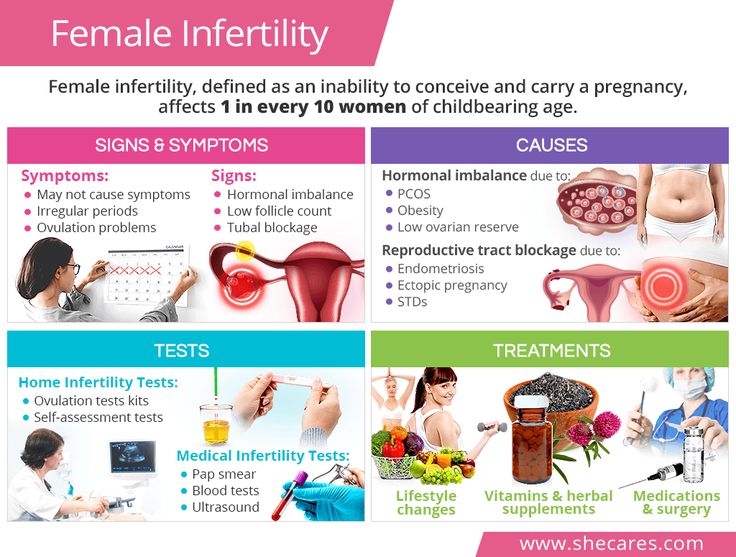
Placental lactogen (PL) is also “produced” by the placenta and can be detected in the blood of the expectant mother as early as 5-6 weeks of pregnancy. It reaches its maximum value by 37-38 weeks, then the hormone level gradually decreases. However, the level of PL must be monitored throughout the entire period of pregnancy - first of all, this is necessary to assess the condition of the placenta and timely diagnosis of placental insufficiency. A sharp decrease in the level of PL by more than 2 times (compared to the average level in accordance with the gestational age) may indicate a delay in fetal development. In this case, it is necessary to take emergency measures to prevent a decrease in the level of PL by 80 percent or more - this can lead to the death of the baby.
Pregnancy hormones
Estradiol and progesterone. Hormonal studies necessarily include tests for progesterone and estradiol levels. It is they who take care of your unborn baby, maintaining the normal course of pregnancy, which is why they are called the main hormones of gestation (pregnancy).
It is they who take care of your unborn baby, maintaining the normal course of pregnancy, which is why they are called the main hormones of gestation (pregnancy).
Estradiol is produced by the ovaries and during pregnancy also by the placenta. During pregnancy, the level of the hormone rises sharply, and it is not surprising - estradiol is "responsible" for the normal course of pregnancy. In the early stages, the concentration of this hormone evaluates the functioning of the placenta. A decrease in the level of estradiol indicates a serious threat of abortion.
By the way, it is under the influence of this hormone that a woman feels a natural desire to “build a nest”, arrange everything and prepare for the birth of a baby. Before childbirth, the concentration of the hormone in the body of the expectant mother reaches its “peak”, which is also due to natural causes - estradiol, acting as the strongest natural pain reliever, helps to make the process of giving birth to a baby less painful.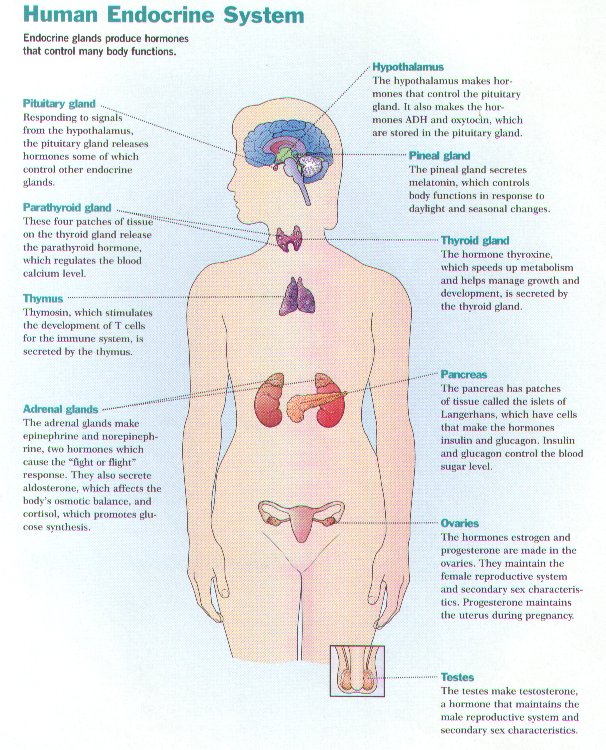
Progesterone is also the main "hormone of pregnancy", the main task of which is to maintain pregnancy and create the necessary conditions for the development of the fetus. A normal level of progesterone is necessary for conception to occur. Together with estrogens, the hormone promotes the attachment of a fertilized egg to the endometrium and carefully reduces the increased tone of the uterus, preventing miscarriage. During the bearing of the baby, progesterone stimulates the growth and maturation of the mammary glands, “preparing” the body of the expectant mother for breastfeeding, and psychologically, it calms her down and morally supports her. Unfortunately, this hormone also has "side" effects that are familiar to every pregnant woman - this is increased drowsiness, nausea, frequent urination, soreness and swelling of the breast.
With a lack of progesterone, pregnancy can occur with serious complications. Hormone deficiency must be urgently replenished, otherwise the risk of non-developing pregnancy and miscarriage increases.
Important! Testing for estradiol and progesterone levels is carried out both during pregnancy and in preparation for the birth of a child, this is especially necessary in cases where a woman has already had a miscarriage.
Thyroid hormones
The normal functioning of the thyroid gland of the expectant mother plays an important role in the development of the baby. The corresponding hormones (TSH, T3 and T4) can also “tell” about the presence of hypo- or hyperfunction of the gland.
Maternity hormones
The hormones of the pituitary gland (an endocrine gland located in the hypothalamic part of the brain) also play an indispensable role while waiting for a baby. During childbirth, the pituitary gland releases the hormone oxytacin into the blood, which stimulates uterine contractions. And after childbirth, an active synthesis of the hormone prolactin begins, which is “responsible” for lactation. With a lack of prolactin, a woman simply would not be able to fully feed her baby with breast milk.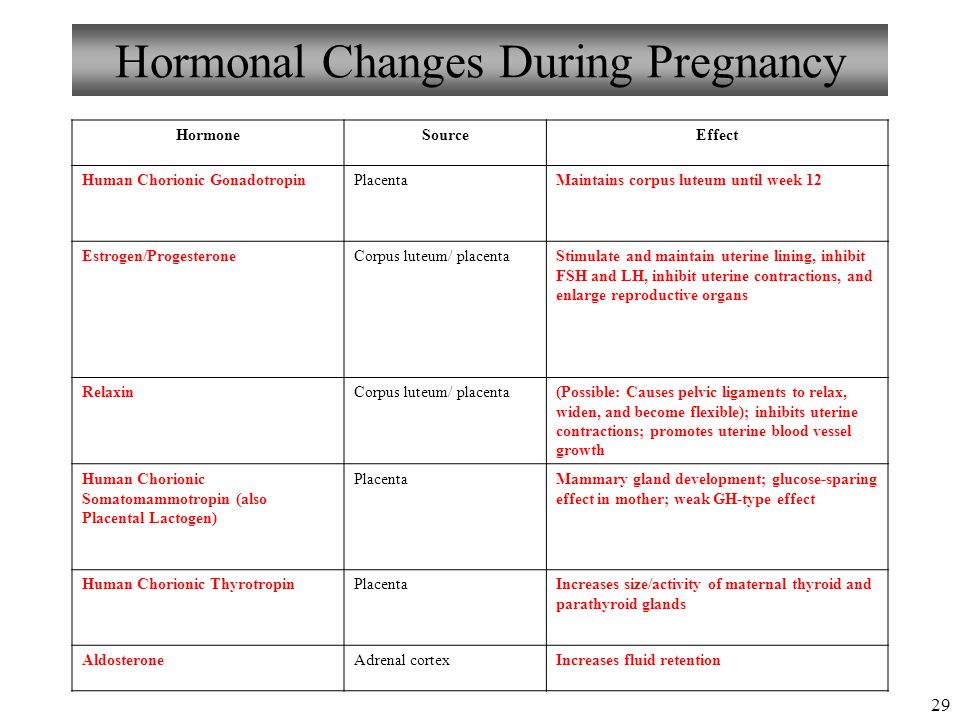
In addition, prolactin and oxytacin are also called "maternity hormones", because thanks to them, the mother's heart is filled with tenderness, she feels the pleasure of feeding and communicating with the child, which binds her to the baby even more. These hormones, in fact, provide a magical “transformation” of a woman into a mother - under their influence, priorities change dramatically, study, work, career and personal success fade into the background, and the main place in a woman’s heart is occupied by a small native creature. It is believed that the more a woman has these same "maternity hormones", the stronger her desire to constantly be with the baby, feel his warmth, take care of him. However, one should not expect that this “transformation” will happen as if by magic: normally, the level of hormones in a woman’s body changes gradually, so that her psyche has time to prepare for the changes without stress. The main thing during pregnancy is to make every effort to endure a strong and healthy baby.